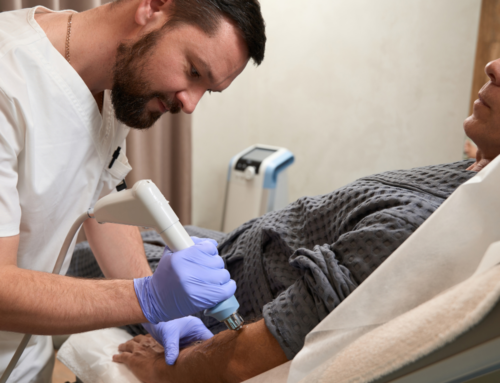Heart disease is the leading cause of death in our country. It’s a staggering fact when you realize that heart disease has been shown, in most cases, to be preventable with the adoption of a healthy heart lifestyle. Heart disease actually encompasses several different types of conditions, including arrhythmia, atherosclerosis, cardiomyopathy, congenital heart defects, coronary artery disease (CAD) and various heart infections.
There are many different risk factors leading to heart disease. It is estimated that around 47% of Americans have at least one risk factor for heart disease. It’s important to learn which ones are within your control, as well as those that are not.
HEART DISEASE RISK FACTORS WITHIN YOUR CONTROL
-
High blood pressure
-
High cholesterol
-
Smoking
-
Obesity
-
Physical inactivity
HEART DISEASE RISK FACTORS YOU CAN’T CONTROL
-
Family history: Heart disease can run in a family. Your heart disease risk increases if a close family member has heart disease, so it’s important to know your family’s medical history.
-
Ethnicity: A 2010 study found that African-American men and women in the U.S. were 30 percent more likely to die of heart disease than non-Hispanic white men and women.
-
Age and Gender: Because plaque builds up over time, your risk of heart disease increases as you age. A 2016 study found that white men between the ages of 35 and 44 are about six times more likely to die of heart disease than white women in that same age group. The difference is less among people who aren’t white. Additionally, after menopause, a woman’s risk of death from CAD is equal to or greater than the same risk for a man by age 75.
PT Can Help Improve the Health of Your Heart
Whether it be through daily activity modification or full-on vigorous aerobic exercise, movement of varied types will significantly help to improve heart health.
Physical therapists are movement experts with the knowledge and skill to create a personalized plan for your ability level and fitness goals. Having the guidance of a physical therapy care team ensures that you will be monitored for safety, and can complete your therapy in a safe, friendly and encouraging environment.
Exercise and Take Control of Your Heart Health
It is recommended that adults should get at least 150 minutes per week of moderate-intensity aerobic activity or 75 minutes per week of vigorous aerobic activity.
Aerobic exercise, more popularly known as “cardio”, increases your heart rate and improves your cardiorespiratory fitness. It’s a good idea to include both moderate- and vigorous-intensity activities in your routine, along with strength training and stretching exercises. Listed below are some examples of aerobic exercises by intensity.
MODERATE-INTENSITY AEROBIC ACTIVITIES
-
Brisk walking (at least 2.5 miles per hour)
-
Dancing
-
Gardening
-
Water aerobics
-
Biking (slower than 10 miles per hour)
VIGOROUS-INTENSITY AEROBIC ACTIVITIES
-
Hiking uphill
-
Running
-
Swimming laps
-
Heavy yard work
-
Cycling (10 miles per hour or faster)
-
Jumping rope
Moving your body frequently throughout each day improves your overall health. While aerobic exercise directly helps strengthen your heart, it also reduces heart disease risk factors and improves your overall heart health!
Give us a Call at Peak Wellness! Whether you want to schedule an appointment or learn more about all of our other services we would be happy to assist!








